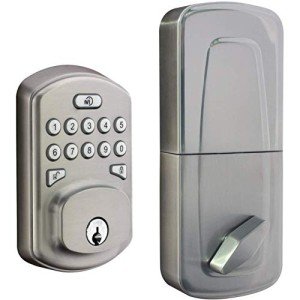You Are Responsible For The Shop Lighting UK Budget? 12 Top Notch Ways To Spend Your Money
Shop Lighting UK: Illuminating the Retail Experience
In the ever-evolving world of retail, the value of shop lighting can not be overstated. It not just enhances the visual appeal of items however also influences client habits, their mood, and the general shopping environment. With improvements in technology and style, shop owners in the UK have a myriad of choices to choose from when it emerges services. This post will explore the types of lighting offered, their advantages, and factors to consider for producing the ideal atmosphere in a retail space.
Significance of Proper Shop Lighting
Reliable shop lighting plays a vital role in client experience and can significantly impact sales. Here are some crucial factors why adequate lighting is necessary for retail environments:
- Highlighting Products: Good lighting accentuates items, making them more appealing to customers.
- Creating Atmosphere: The best lighting can set the state of mind and evoke feelings, influencing buying decisions.
- Enhancing Safety: Well-lit stores are more secure, assisting consumers browse without risk of tripping or accidents.
- Improving Visual Merchandising: Proper lighting can improve screens, making them dynamic and distinctive.
Types of Shop Lighting
Shop owners can pick from various kinds of lighting, each serving various functions, consisting of ambient, job, accent, and decorative lighting. Here's a breakdown of each type:
Type of Lighting
Description
Best Uses
Ambient Lighting
Provides overall lighting to the space.
General retail locations like stores and supermarkets.
Task Lighting
Concentrate on particular locations to boost presence for tasks.
Checkout counters and dressing rooms.
Accent Lighting
Emphasizes particular items or displays, producing a centerpiece.
Show cases, art, or advertising products.
Decorative Lighting
Adds visual appeal and improves the total design.
Chandeliers and distinct fixtures in high-end shops.
1. Ambient Lighting
Ambient lighting is the fundamental illumination within a shop. It fills the entire space, making sure that consumers can see and navigate conveniently. Retailers ought to think about utilizing LED panels or ceiling-mounted fixtures, as they provide energy performance and excellent light circulation.
2. Task Lighting
Job lighting is vital for areas where particular activities occur, such as checkout counters or workstations. Shop owners can set up under-cabinet lighting or track lights to focus lighting on these areas, enhancing the convenience and experience for both personnel and consumers.
3. Accent Lighting
Accent lighting helps accentuate particular items or functions within the store. This kind of lighting can be achieved through spotlights, track lights, or strategically positioned wall-mounted fixtures. It is particularly effective for showcasing featured items, advertising display screens, or artwork, guiding customer focus where it's most required.
4. Decorative Lighting
Beyond functionality, decorative lighting components add design and character to a retail space. Distinct fixtures, such as pendant lights or extra-large chandeliers, can create a remarkable atmosphere, especially in shops or high-end sellers. These declaration pieces not only light up but also boost the shop's branding and aesthetic appeal.
Picking the Right Lighting for Your Shop
When picking lighting for a retail environment, shop owners must think about the list below elements:
- Store Type: Different kinds of retail need varying lighting options. A precious jewelry store might need softer, more concentrated lights, while a supermarket might require brighter ambient lighting.
- Color Temperature: The color of light can impact the perception of products. Warm lights (under 3000K) develop a relaxing feel, while cool lights (above 3000K) can make an area feel more contemporary.
- Energy Efficiency: The use of LED lighting not just saves energy but also minimizes expenses in time.
- Versatility: Install dimmers or adjustable fixtures to adjust lighting for various celebrations or seasonal changes.
The Future of Shop Lighting
As technology progresses, shop lighting is becoming increasingly sophisticated. Here are some patterns shaping the future of retail lighting in the UK:
- Smart Lighting Solutions: Integrated technology enables remote control and automation of lighting systems through smartphones or home assistants.
- Sustainable Lighting: There is a growing emphasis on environment-friendly services, with sellers going with items that decrease environmental impact.
- Centerpiece Lighting: Retailers are progressively utilizing lighting to create particular focal points that assist consumer traffic and enhance product screens.
Frequently Asked Questions about Shop Lighting in the UK
Q: What is the very best kind of lighting for a clothes store?A: A combination of
ambient and accent lighting is typically best. Ambient lighting is required for general presence, while accent lighting can assist highlight essential pieces or collections. Q: How can I make my shop lighting more energy-efficient? A: Consider utilizing LED lights, installing movement sensing units, or including
dimmers. This lowers energy intake and expenses in the long run. Q: Should I utilize natural light in my shop?A: Yes, utilizing natural light can improve consumer experience whilereducing energy costs. However, it is necessary to balance natural light with synthetic lighting, particularly on cloudy days. Q: How frequently should I replace my shop's lighting fixtures?A: This depends on the kind of fixtures utilized. LED lights can last as much as 25,000 hours, while traditional bulbs****
may need to be replaced more often. look at this web-site are advised. In a significantly competitive retail environment, shop lighting plays an important function in forming consumer experiences and driving sales. Merchants in the UK have a wide selection of options and technologies at their disposal to produce the ideal ambiance. By understanding the significance of the various types of lighting and how to implement them effectively, shop owners can improve their area, making shopping more satisfying for consumers while increasing their bottom line. 